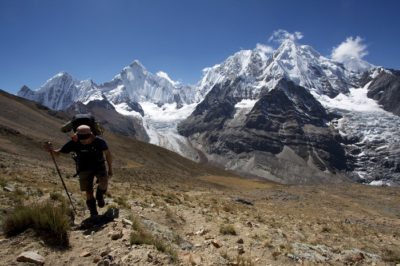 Obesity rates are skyrocketing, and chronic illness, depression and behavioral problems are on the rise. While many are quick to blame Western food entirely for the health problems in America, there is another factor at play here.
Obesity rates are skyrocketing, and chronic illness, depression and behavioral problems are on the rise. While many are quick to blame Western food entirely for the health problems in America, there is another factor at play here.
Perhaps you guessed that the missing link is movement — we are just far too sedentary. This also is part of the problem, but a trip to the gym and 30 minutes on the elliptical still leaves us missing something vital.
Once upon a time
To understand this vital missing link you must look outside your window and imagine how your great-grandparents lived. They did not spend the majority of their day indoors, under artificial light. No, they were outdoors. We have been a sedentary culture for a very short period of time compared to the time we (humankind) have spent chasing our dinner or being chased by our dinner.
There was a time when everyone planted and harvested crops, hunted and fished. We spent massive amounts of time soaking in vitamin D from the sunshine, learning the ways of the animals and plants around us and making an intimate connection between ourselves and the outside world.
In less than a generation’s time, millions of Americans have completely severed the tie between themselves and the natural world. Sadly, this has taken a toll on all aspects of our health.
Author Richard Louv, who wrote “Last Child In The Woods” and coined the term “Nature Deficit Disorder,” argues that a lack of connection with nature is to blame for a large number of behavioral problems seen in today’s youth. According to a Kaiser Family Foundation study, the average young American now “spends practically every minute — apart from time in school — using a smartphone, computer, television or electronic device.”
Awaken Your Child’s Love of Learning, History And Adventure!
Both kids and adults are not getting outside, and it is almost like we have become afraid of it — afraid of the sun, afraid of the wind, afraid of other living creatures. We have traded a walk in the woods for a trip to the mall and a kitchen garden for a jaunt to the supermarket. We live in a world of convenience where we no longer have to physically toil in the soil for our dinner or play hide and seek for entertainment.
Benefits of the outdoors
In addition to exposure to the sunshine, there are many more benefits to getting outside. Spending time outdoors is therapeutic, especially when it comes to stress relief. Research is demonstrating that surrounding ourselves with nature could be one of the most powerful stress-relieving tools in existence.
The journal Landscape and Urban Planning published a study where researchers measured the levels of stress hormone cortisol in 25 healthy adults in Scotland. They asked participants to fill out questionnaires about the stresses in their lives, both at home and at work.
This information was compared to the number of parks and other natural areas in each participant’s zip code. The results showed that those who lived where there was the most amount of green space reported less stress and had lower cortisol levels than those who spent more time in urban areas.
Wide open spaces and less-developed areas provide more opportunities for people to interact with nature — to get outside, to move and to de-stress.
Story continues below video
Interestingly enough, parks and recreation spaces were first created with health in mind. As long ago as the 1890s, landscape architects and park planners were worried about the rising sedentary lifestyles of Americans. What would they think about us now?
The 19th-century Rational Recreation movements sought to encourage various forms of leisure that they considered most profitable, and a primary component of this was contact with nature.
If you happen to live in a city, don’t despair. Just make it a habit to get outside as much as possible. Even as little as five minutes a day can boost your mood and lower stress levels.
A 2010 study documented in the journal of Environmental Science and Technology found that people experienced the biggest boost in mood and self-esteem after spending only five minutes outside, walking or taking part in some other form of exercise.
What to do
If you have a hard time getting outdoors, here’s some ideas:
- Plant a garden — Not only will you benefit from the food you produce but you will get some valuable time outdoors caring for something important — all plusses when it comes to health.
- Take a walk — There is no better form of exercise than walking — it is easy on the joints, inexpensive and takes no particular skill. Even if you just take a walk around the block once or twice a day, you will really benefit from it.
- Move meetings outdoors — If you spend a great deal of your time in meetings indoors, try to see if you can move some of them outside. Many people are now doing what is called “walking and talking,” where they are walking while having a meeting. Many find they are more creative and productive this way than sitting in a stuffy office.
Make it a point to spend more time outdoors — soaking in the sun and all that nature has to offer. Your mind and body will be forever grateful.
What are other benefits of being outdoors? Leave your reply in the section below:
 Off The Grid News Better Ideas For Off The Grid Living
Off The Grid News Better Ideas For Off The Grid Living




